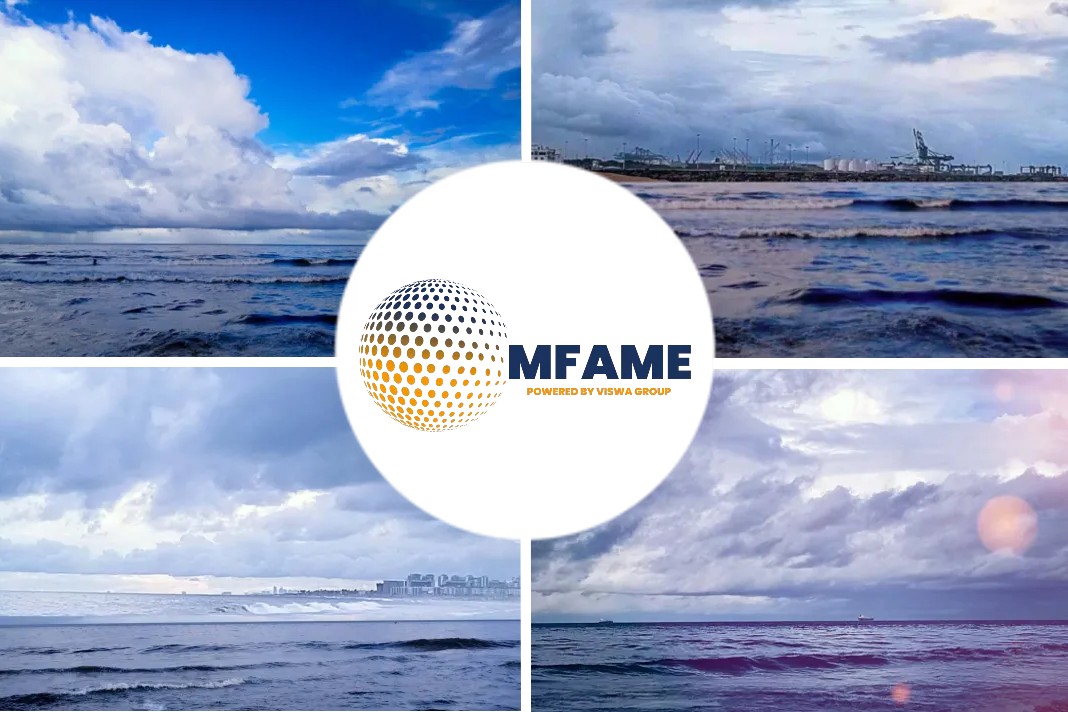- MISC, SHI, Lloyd’s Register and MAN join hands to work on addressing shipping’s decarbonisation, to meet IMO’s 2050 Greenhouse Gas (GHG) emission target.
- Commercially viable deep-sea Zero-Emission Vessels (ZEVs) needed to be in operation by 2030.
- Zero Coalition is an alliance of leading maritime, energy, infrastructure and finance companies getting commercially viable deep-sea ZEVs.
Industry leaders join hands to work on addressing shipping’s decarbonisation, says an article published in Lloyd’s Register website.
Who are the partners?
MISC Berhad, Samsung Heavy Industries (SHI), Lloyd’s Register and MAN Energy Solutions have announced a joint development project (JDP) for an ammonia-fuelled tanker to support shipping’s drive towards a decarbonised future.
What brought them together?
The partners have the common belief that the maritime industry needs
- leadership and
- greater collaboration
to meet the International Maritime Organisation’s 2050 Greenhouse Gas (GHG) emission target.
It requires commercially viable deep-sea Zero-Emission Vessels (ZEVs) to be in operation by 2030. Ammonia is just one of the pathways towards zero-carbon emitting vessels.
Dominant focus of the decade ahead
The drive to decarbonise shipping will be a dominant focus of the decade ahead. This follows a year of action in 2019 that saw the launch of the Getting to Zero Coalition.
Getting to Zero Coalition
Getting to Zero Coalition is an alliance of leading maritime, energy, infrastructure and finance companies committed to getting commercially viable deep-sea ZEVs powered by zero emission energy resources into operation by 2030.
Global Maritime Forum
Shipping’s decarbonisation was a key discussion during the Global Maritime Forum held in Singapore in October 2019. More than 220 industry leaders gathered to discuss the challenges facing the shipping industry.
Partners comments
CEO MISC
Yee Yang Chien, President & Group CEO MISC Berhad said:
“At MISC, we believe the global maritime industry needs to be more collaborative in defining our future together, rather than being confrontational and fragmented in our efforts. I am very glad that our distinguished partners have come together with MISC to showcase joint leadership in developing one of the pathways towards a zero-carbon future for the maritime industry. We need more shining examples of partnerships and collaborations in our industry and it is my hope that this will encourage our peers in the industry to also join hands with others to advance the zero-carbon agenda.”
CEO of Samsung Heavy Industries
Joon Ou Nam, President & CEO of Samsung Heavy Industries said:
“We are very delighted to be a key member of this meaningful industry collaboration together with competent partners. We all know that the industry–wide movement is vital, and new zero-carbon fuel technologies, such as ammonia fuel, are to be brought on the table, in order to take action proactively on maritime GHG emissions in accordance with the IMO’s ambitious road map. We hope SHI’s experience and expertise in novel ship design development will effectively contribute to this joint development project and all JDP partners could get better insight into the feasible and sustainable zero-carbon fuel vessel design solutions.”
Director, Lloyd’s Register
Nick Brown, Marine & Offshore Director, Lloyd’s Register said:
“As we start the 2020s we are proud to be among a four-party team to make deepsea Zero-Emission Vessels (ZEVs) a reality within this decade. The IMO’s 2050 GHG ambitions, which prescribes that international shipping must reduce its total annual greenhouse gas emissions by at least 50% of 2008 levels by 2050, require substantial and collaborative input from all maritime stakeholders and we are confident the lead taken by this partnership will encourage others to work collectively to address the challenge. These are exciting times as we commence the industry’s fourth Propulsion Revolution as during LR’s history we have supported the transition from wind to coal to oil and now look forward to safely decarbonising.”
Head of Two Stroke Business at MAN
Bjarne Foldager Jensen, Senior Vice President, Head of Two Stroke Business at MAN, said:
“Joining this project makes perfect sense for MAN Energy Solutions as system technologies that help our customers to reduce emissions and lead the way to a carbon-neutral future form a significant part of our business strategy. Low-speed diesel engines are the most efficient propulsion system for trans-oceanic shipping and already run on a sizable number of emission-friendly fuels. We look forward to adding ammonia to the list and welcome the opportunity to work with industry partners in this venture.”
Did you subscribe to our daily newsletter?
It’s Free! Click here to Subscribe!
Source: Lloyd’s Register
















